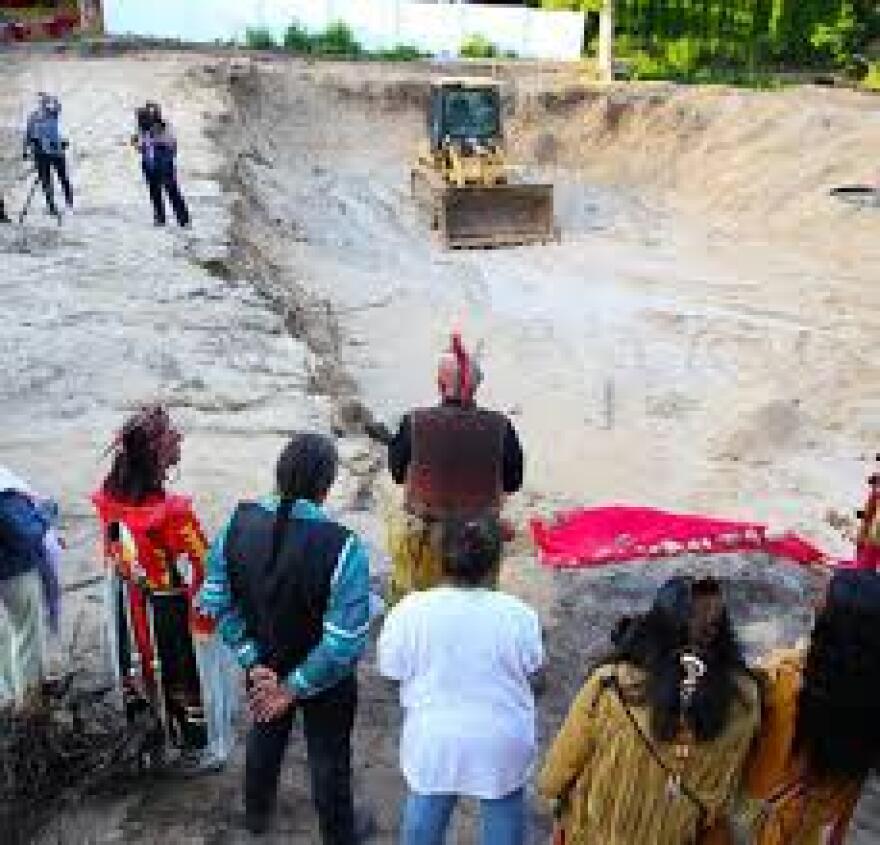
New York will soon enact a law to protect the remains of Indigenous people and others found in unmarked graves.
Lawmakers passed a bill that would protect unmarked burial sites found on privately owned land from destruction. When the state’s annual budget was approved, it included a provision to authorize the Unmarked Burial Site Protection Act.
The bill would protect the unmarked burial sites from desecration by private developers, as current federal and state laws do not apply to lands held privately. The bill would apply to Native burial sites, African Americans and Revolutionary War veterans.
Last year, Governor Kathy Hochal vetoed the bill after the legislature passed it with near unanimous support. The controversial decision led a group of tribal nations that included the Shinnecock and Unkechaug to condemn Hochul for the decision.
Tela Troge, a sovereignty attorney for the Shinnecock Tribal Nation, said five tribes worked together with Assembly members to continue negotiations.
“It’s one that there were some concessions in the negotiations but I believe ultimately it's a very strong piece of legislation that will protect the dignity and the sacredness of the ancestors who are buried throughout the state of New York,” Troge said.
Assemblymember Fred W. Thiele, Jr. introduced a new bill in February that had elements of the bill similar to The Unmarked Burial Site Protection Act that the governor vetoed in December. Thiele said the governor's office reached out to negotiate terms to place the bill into a provision in the state budget.
“Anytime on private property that remains are discovered, there's now a process in place and what happens isn't left to the whim of the property owner,” Thiele said.
Harry Wallace, the chief of the Unkechaug Tribe, spoke with WSHU in February about the bill. Wallace said the tribes have worked for the past 25 years to pass this bill. Troge said one of the points of contention with the amendments was a disagreement of the amount of time required before a property owner could remove bodies.
Troge said the original amendments would have allowed for a property owner to remove bodies from land after a 10-day wait. The new bill extends the wait period to 90 days and owners must hire a professional archeologist for the removal. Troge said the new bill is an even stronger piece of legislation than the original bill drafted.
“We have a very refined, well negotiated bill that equitably protects all interested parties that are inadvertently affected when human remains are found in residential or commercial construction,” Troge said.
Private developers that find suspected remains would be required to stop development and contact the state. Troge said private landowners can be subject to a Class E felony if they do not abide by the law.
Now, the bill outlined in the state budget would make the destruction or removal of remains and funerary items a crime. Private developers that discovered unmarked remains on their property would be required to stop development and contact the county medical examiner or coroner.
If remains or artifacts are identified, private developers must consult with a committee of tribal representatives and state experts to decide what to do next. Tribal descendants or tribes with connection to the remains would be given the “right of possession” of the Native American remains and burial objects. The governor is expected to sign the bill into law in the coming days.
“Final justice has been done. This legislation has been enacted and these protections and these prohibitions against defacing or destroying these burial sites, is going to be on the books in New York,” Thiele said.

